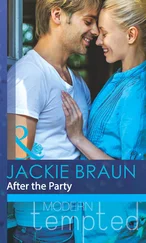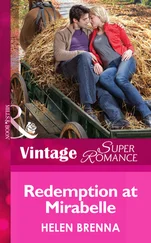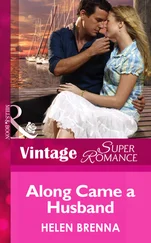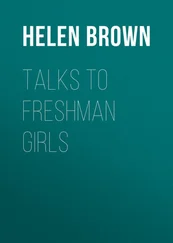Suddenly I felt a rush of wind between my ankles. Opening my eyes, I saw a cream and brown streak scoot between my feet. It shot straight behind us to hide under my car. Hot on its heels lolloped 100 kilos of eager canine, closely followed by a bemused owner. After trying to follow its prey through my legs, the dog nearly knocked me backwards. It then took a detour and charged around me toward my car.
‘That your cat?’ the dog owner asked, panting slightly. ‘Spike just wants to be friendly. See? He’s wagging his tail.’
The dog’s bark rose to a staccato tenor as it tried to lure Jonah out from his hiding place for a tête-à-tête. But Jonah wasn’t tempted. He emitted a dark, throaty yowl from under the car.
The dog lurched back on its haunches in surprise.
‘I’ve never heard a cat sound like a cow before,’ said his owner.
Jonah’s yearning for broader horizons continued to be mirrored in our older daughter. The monk’s visit had made her restless.
My heart jarred when she talked of returning to Sri Lanka. I kept an anxious ear out when she phoned the monastery. Whenever she spoke to the strangers at the end of the line, I was intrigued to hear her lapsing into the musical talk she used for chanting.
She’d always had a good ear for languages, but it seemed incredible she could have picked up Sinhalese so quickly. Her sentences ran smoothly and whoever she was speaking to had no trouble understanding her. The more I eavesdropped on Lydia’s secret life, the more mysterious it became.
If she was taking the trouble to learn the language, she obviously believed she had some kind of future in Sri Lanka. I continued monitoring the news. Though the country was still awash with violence, twenty-five years of war was dragging to a bloody conclusion. On 16 May 2009, the Sri Lankan president claimed victory over the Tamil Tigers. A silence rather than a truce, some said. But I hoped it might mean that if Lydia decided to go there in the future it mightn’t be such a source of worry.
When the phone shrieked to life close to midnight one night, I fumbled for the receiver. Since Sam’s accident, my nerves had been permanently rearranged and completely lacked resilience around unexpected phone calls. Whenever anyone asked what I’d like for my birthday I’d say anything except a surprise.
To my astonishment, the caller was my Sydney publisher, Louise. Her tone was urgent. I took a breath and waited for terrible news.
Louise said her colleagues had taken Cleo to the London Book Fair – and it was a huge hit. At this very moment, five British publishers were bidding for the UK rights, and publishers from at least ten other countries were keen to translate the book into their own languages.
I’d developed a technique for dealing with bad news – stepping back, slowing thought processes down, trying not to say anything stupid. But good news? Incredibly good news? It was almost impossible to believe our quirky story about loss, love and a small black kitten was being launched into the world.
Now I was fully awake, my mouth was capable of shaping only two words and repeating them again and again. Wow and thanks.
‘You’ve written an international bestseller,’ said Louise. ‘It’ll change your life.’
After I got off the phone, the bedroom shadows seemed to fill with the presence of those I’d tried to honour through the book. Sam and Mum enveloped me with loving warmth, along with Cleo herself. I’d finally found a way to acknowledge the parents, strangers and friends who’d helped us through our loss – along with the man who’d sat with Sam during his final minutes on the roadside. The book had also given me a way to let the driver of the car that had killed our son know that I forgave her at a deep and truthful level.
Stardust
A cat takes on the world
The book Cleo padded softly onto the scene with a launch in a Melbourne bookstore. Among the fifty or so people there, it was wonderful to see some of our dearest friends smiling and generously asking for their copies to be signed. Julie, my yoga teacher, Dave the interior designer, Katharine’s violin teacher . . .
Not so close friends had also dragged themselves away from the early evening news to be there – the shrink who’d helped me through breast cancer; Robert who’d designed my website, though we’d never met.
A wonderful woman I’d made friends with through Lydia’s school, Professor Deirdre Coleman, gave a speech which was so thoughtful and kind I was almost overcome.
Most important was having Philip and our nearly grown-up family there. Rob and Chantelle carried that special glow lovers have. Lydia and Katharine had invited some of their friends along, and were looking especially beautiful.
People sometimes ask how they feel featuring in so much of my writing. All I can say is they’re incredibly generous and tolerant about it. Rob, Lydia and Katharine grew up knowing nothing different. They were written about even before they were born, through almost all our ups and downs until the present. I was helped by the fact that for most of their lives they were convinced no one could possibly want to read Mum’s ramblings.
It probably hasn’t been so easy for Philip. It took him a while to adjust to being writer’s fodder, on the understanding he read anything he featured in before it was published.
A week after the Melbourne signing, I flew across to New Zealand for another even more moving launch in Wellington, where much of the book had been set. I was honoured that Louise travelled from Sydney for the event. Both she and Roderick Deane, who’d first encouraged me to write the book several years earlier, gave terrific speeches that were followed by tearful reunions with old friends and neighbours.
With invitations to appear on television and give talks in Australia and New Zealand, it looked like I was no longer destined to live under the middle-aged woman’s invisibility shroud. Maybe I wouldn’t be doing crosswords and watching The Weakest Link until I was carried out of the house in my recliner rocker.
I was half expecting the family to show signs of resentment, but their eyes shone whenever good news about the book came in. And there was plenty of it.
Hurrying to the computer every morning, I could track where the book had just been released by the foreign language emails that had flooded in from readers overnight. Russia and Taiwan one week, Italy the next. I hadn’t realised the Translate function on a computer could be so handy. Cleo ’s success was teaching me that people are similar the world over. We cherish our pets and we’d give our lives for our children. Given that humans care so much about the same things, it’s tragic that so much energy is wasted concentrating on our differences.
Lydia rolled her sleeves up and took over instinctually when dishes piled up in the sink or I’d inadvertently forgotten to cook dinner. Following her lead, Katharine became equally helpful. I never had to ask for a table to be set or cleared.
Cancer had taught our daughters to shoulder responsibility and flourish as young women. Watching them laughing and talking together, I sometimes felt overwhelmed with gratitude. If things had unfolded differently and I’d delayed the mammogram, I’d have been present only as a memory.
Countless emails flashed up on the computer screen. Many of them were incredibly touching, a tribute to cats and their importance in people’s lives. One woman whose husband had committed suicide wrote saying their cat (who was usually terrified of strangers) had stayed by her husband’s side while paramedics worked to save him. Another was from a woman whose clinical depression after a miscarriage seemed incurable – until a cat called Cleo stepped into her life. Then there was Wilson, the cat who refused to leave the bedside of a four-year-old stricken by leukaemia. The night the boy died, Wilson ran on to the road and was hit by a car. A vet, understanding the family’s torment, did everything he could to save the cat and Wilson survived to help them through grief.
Читать дальше












